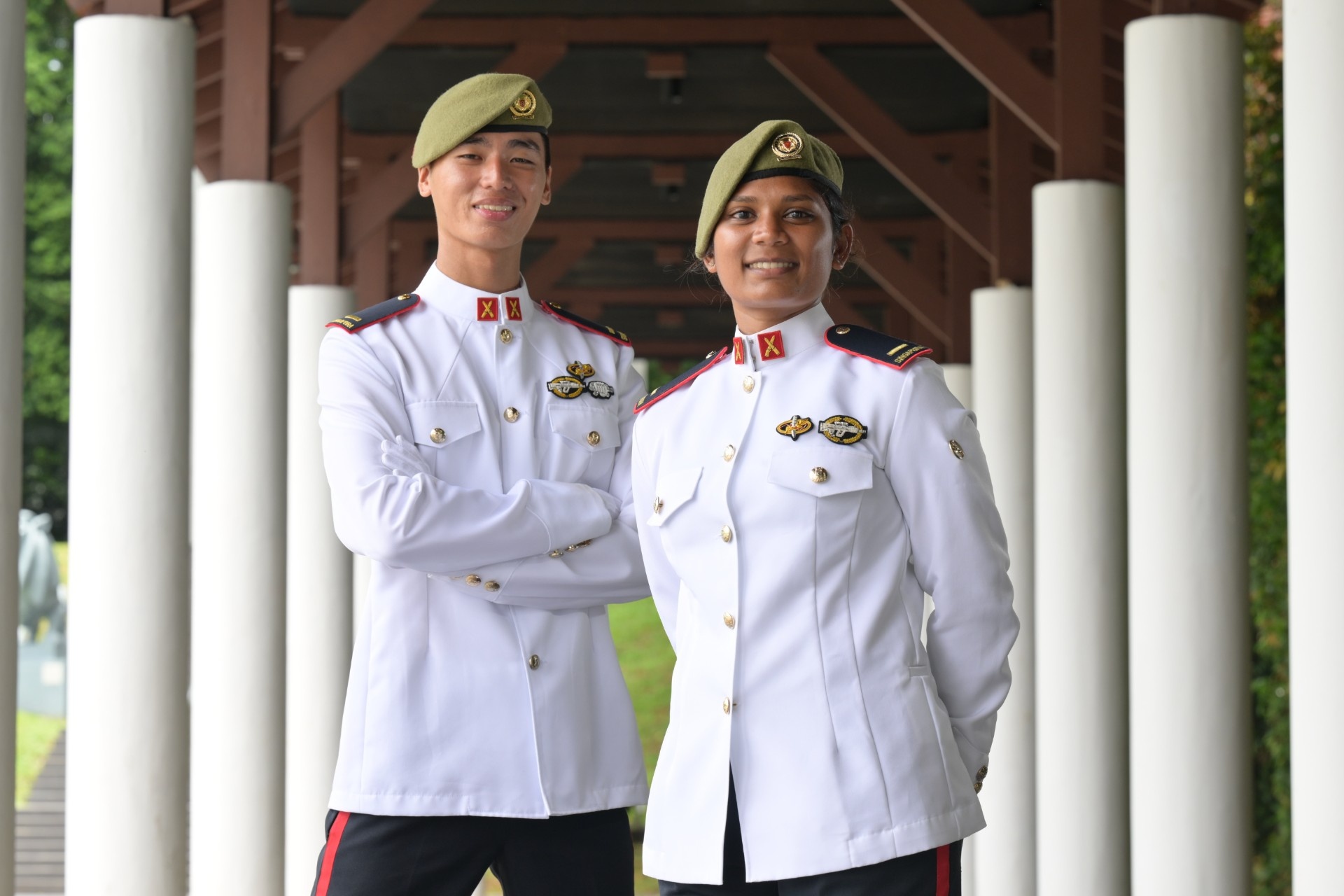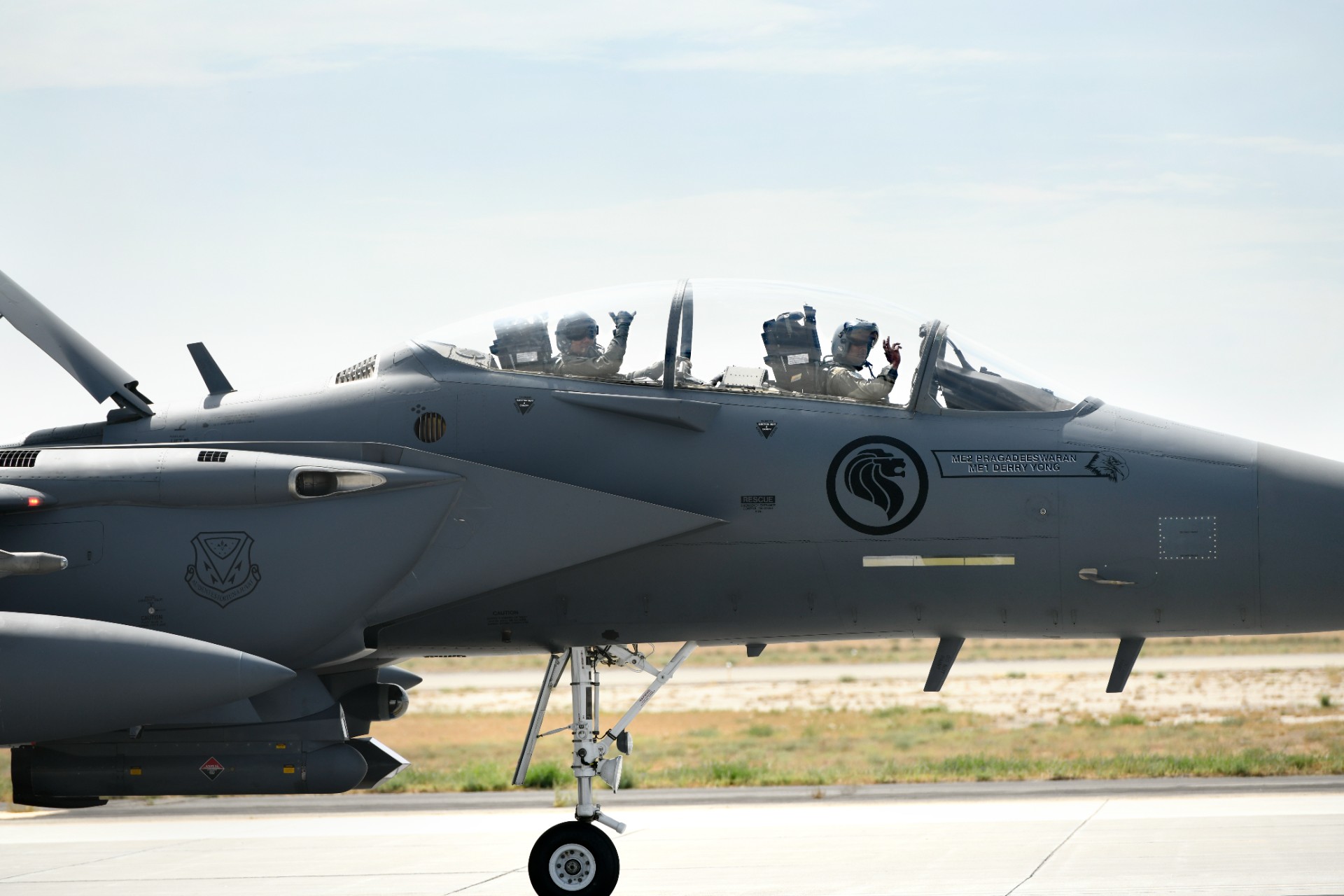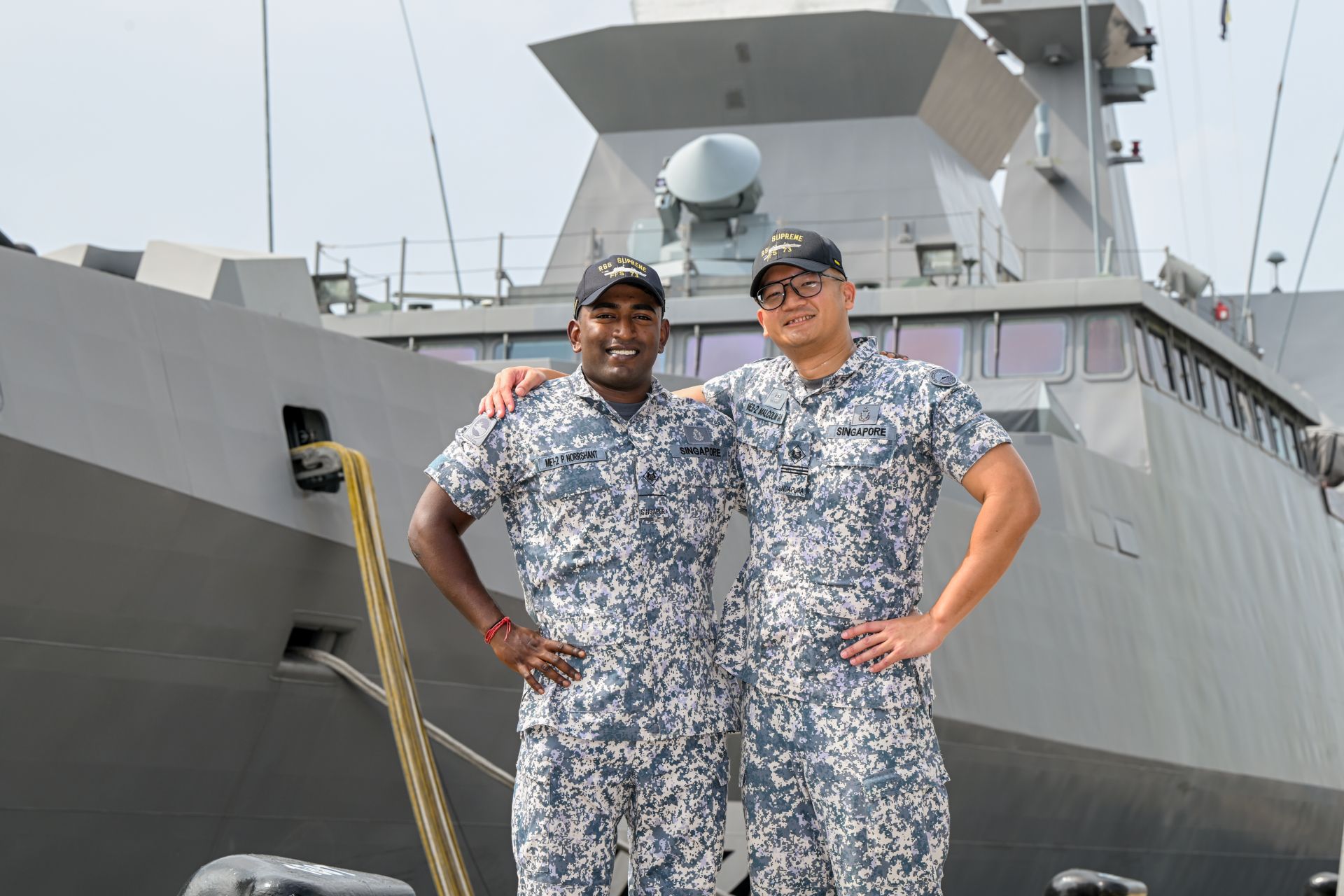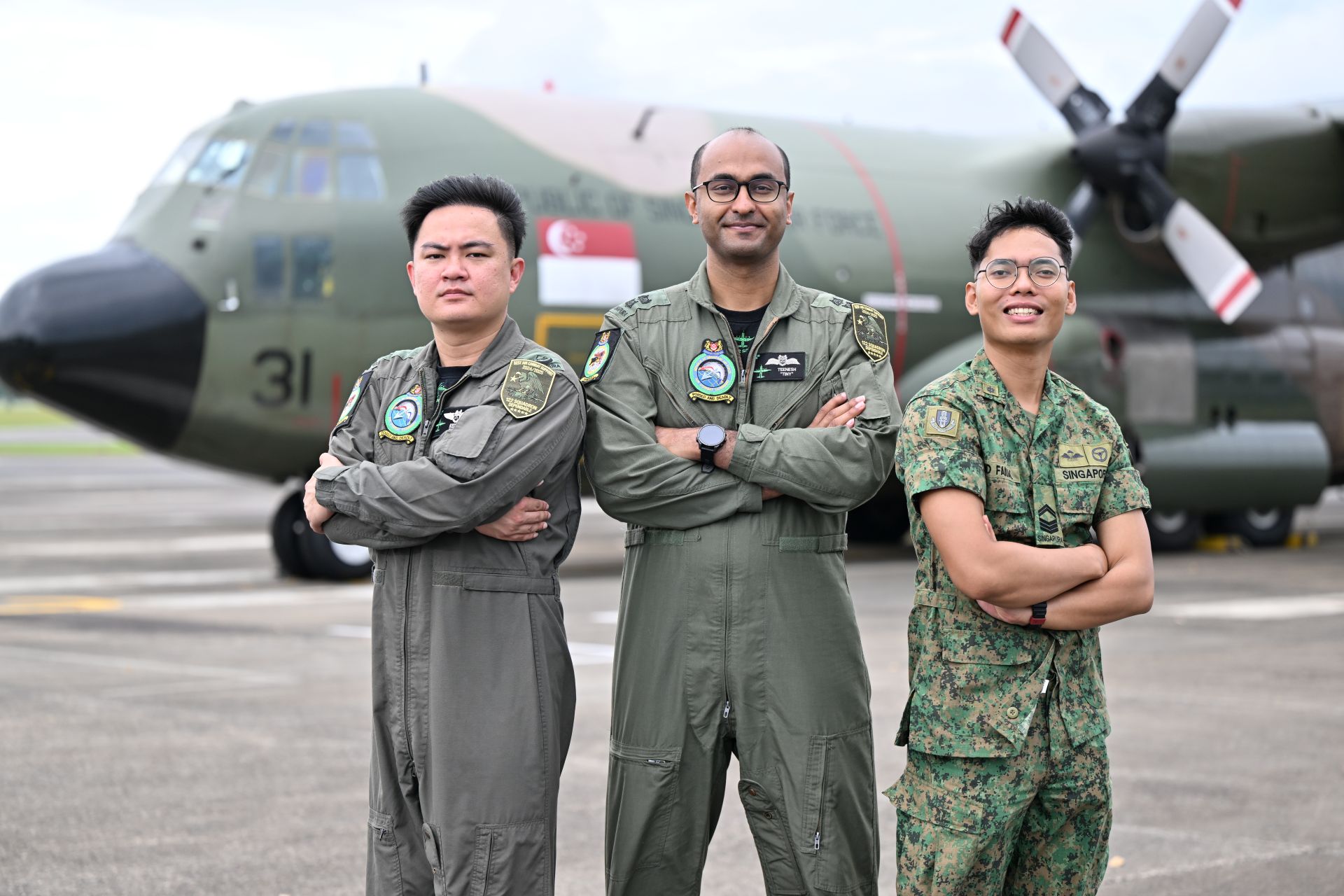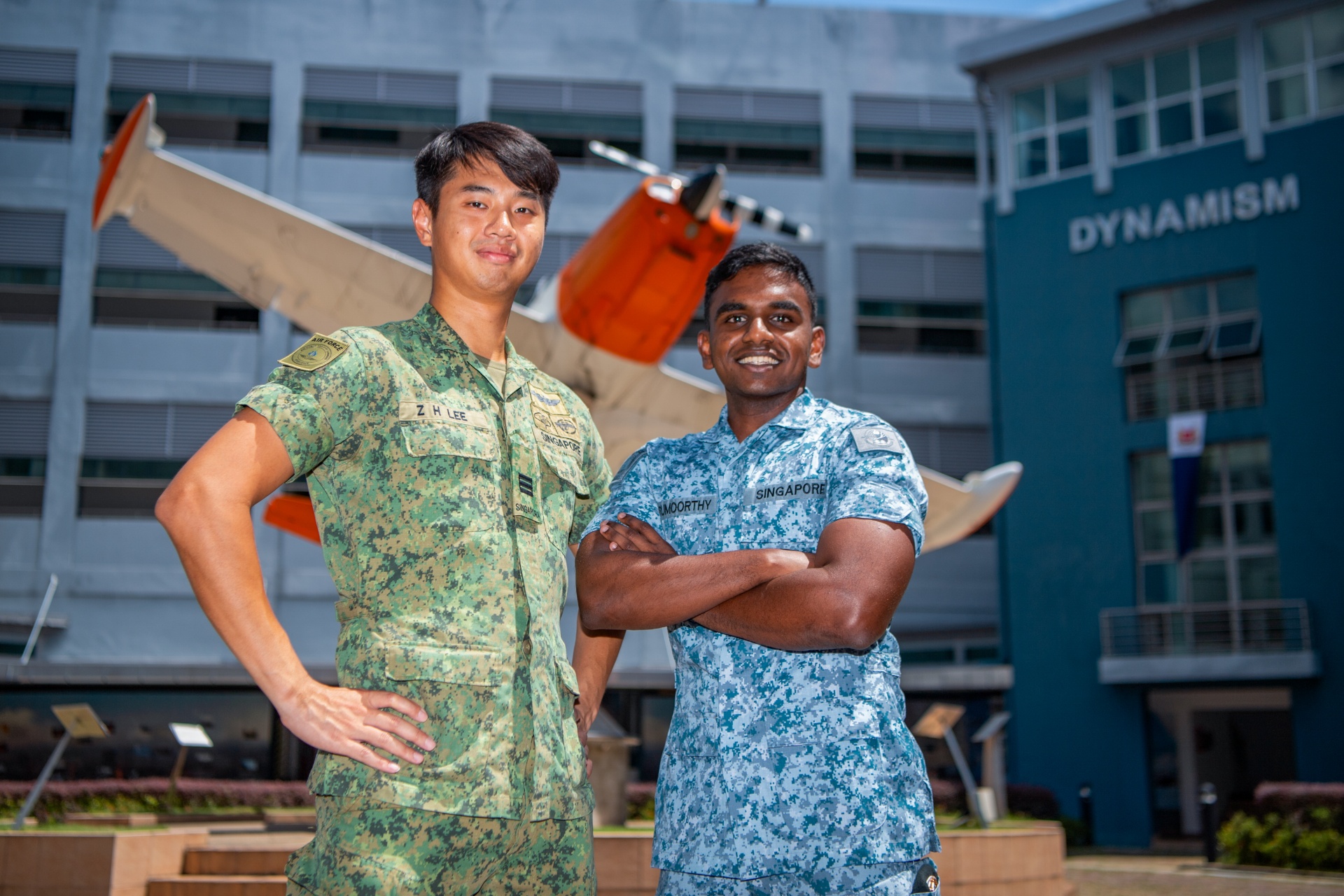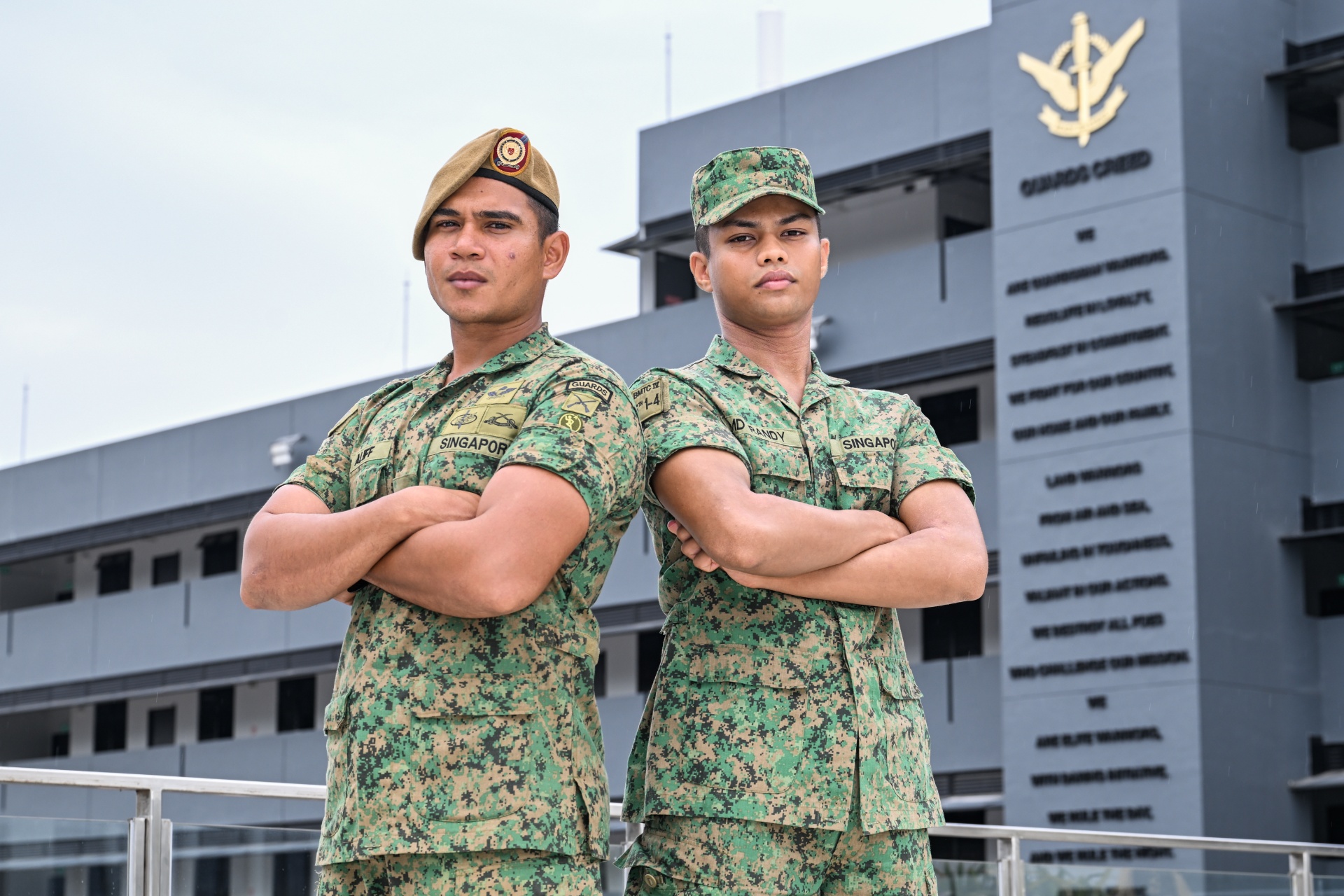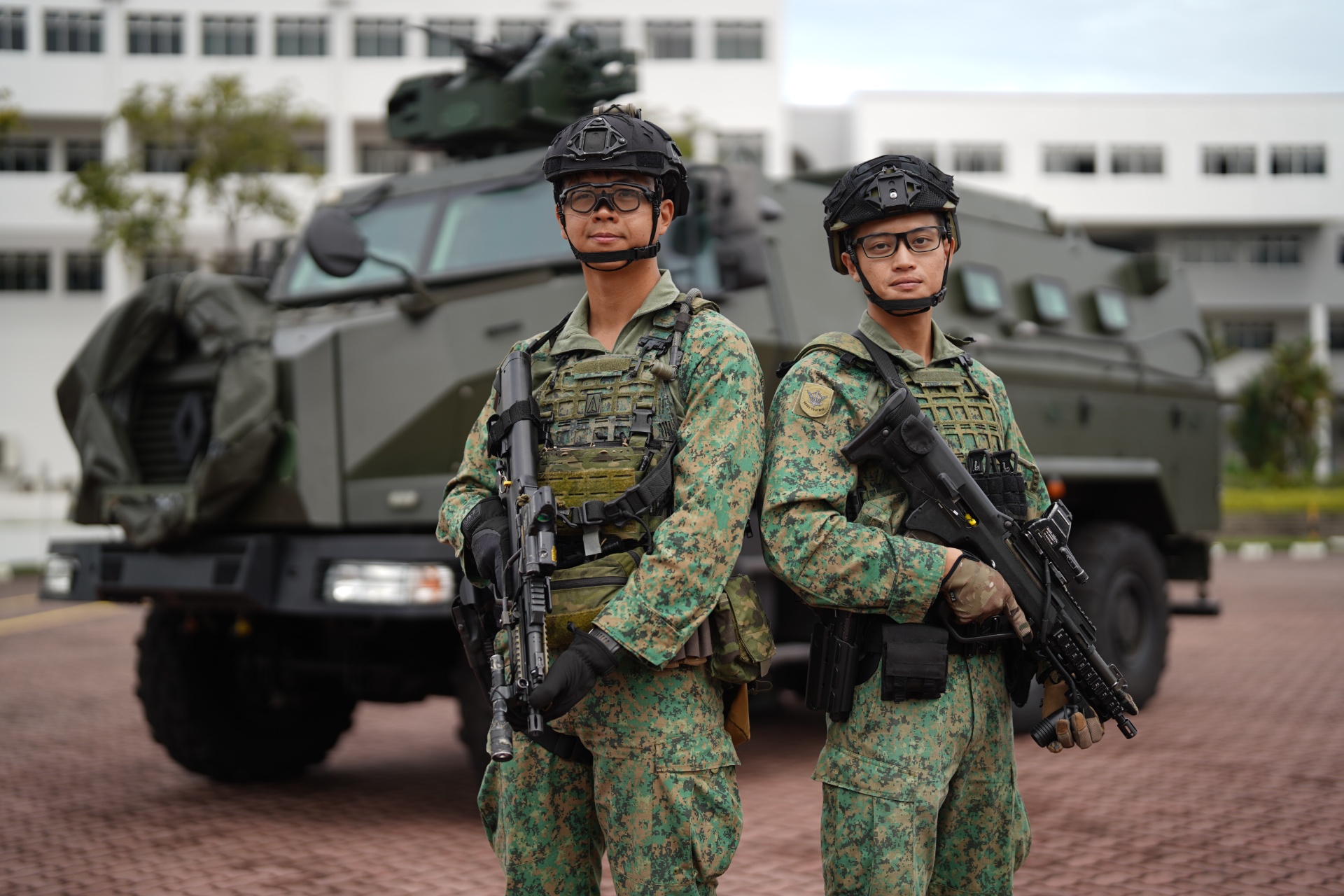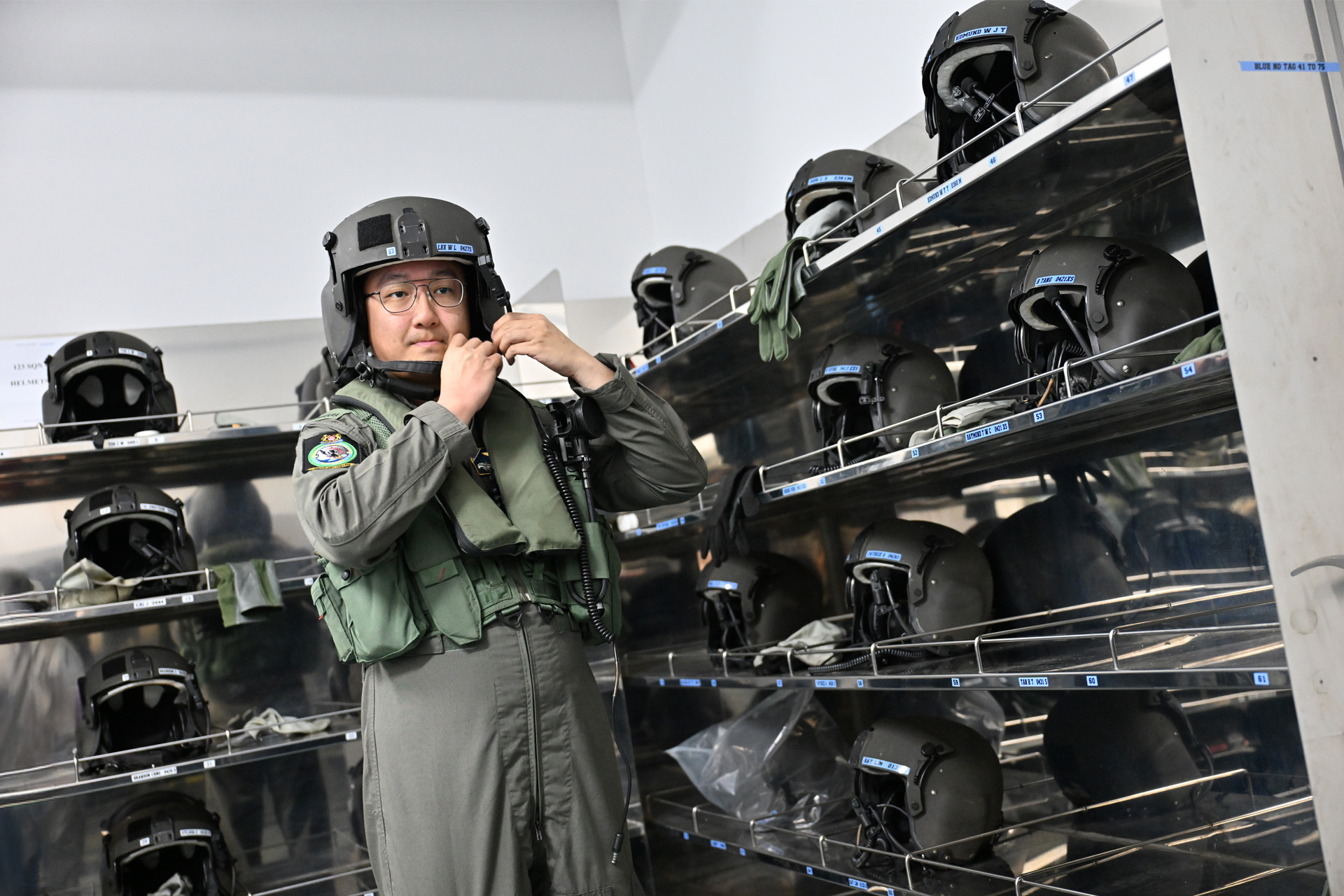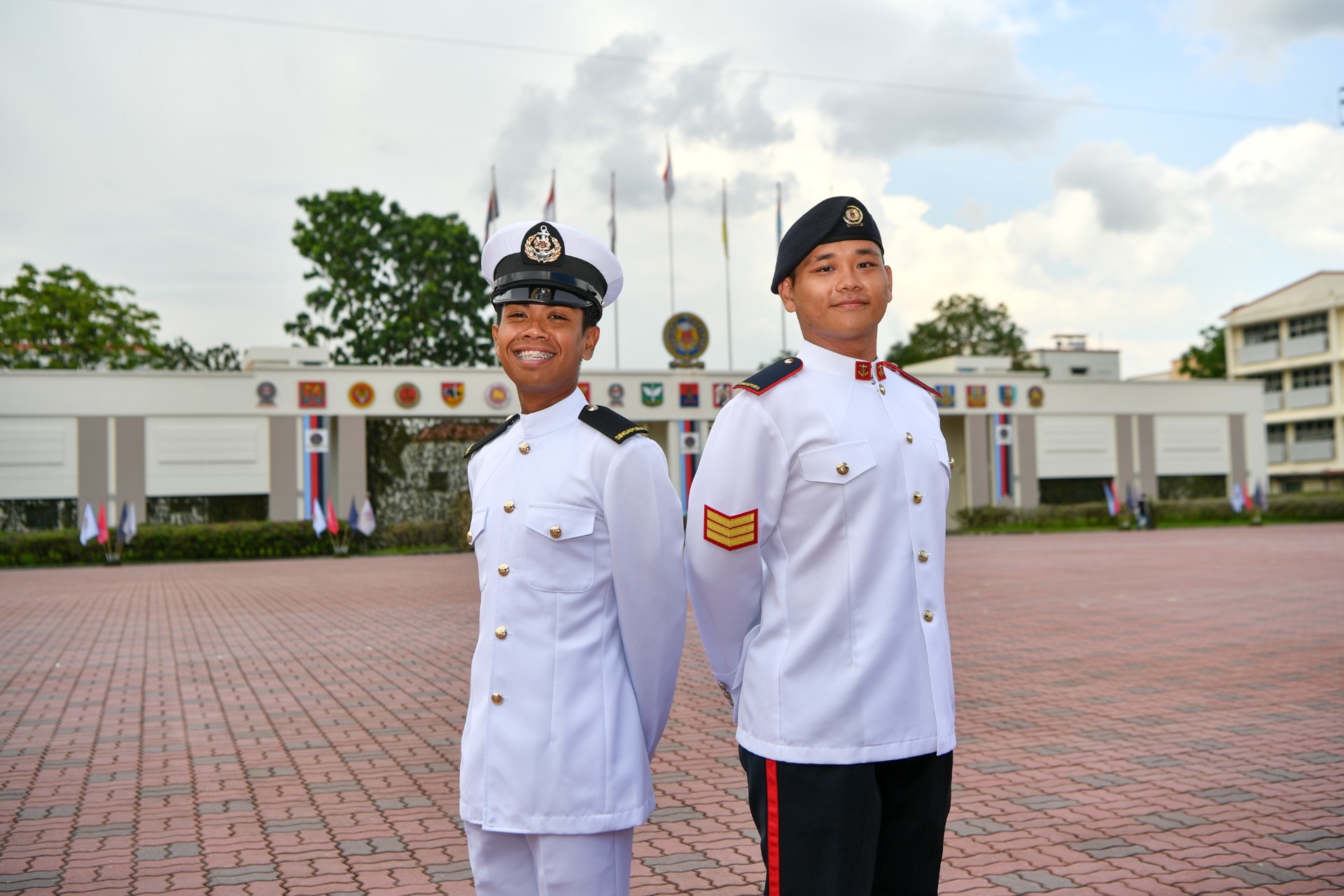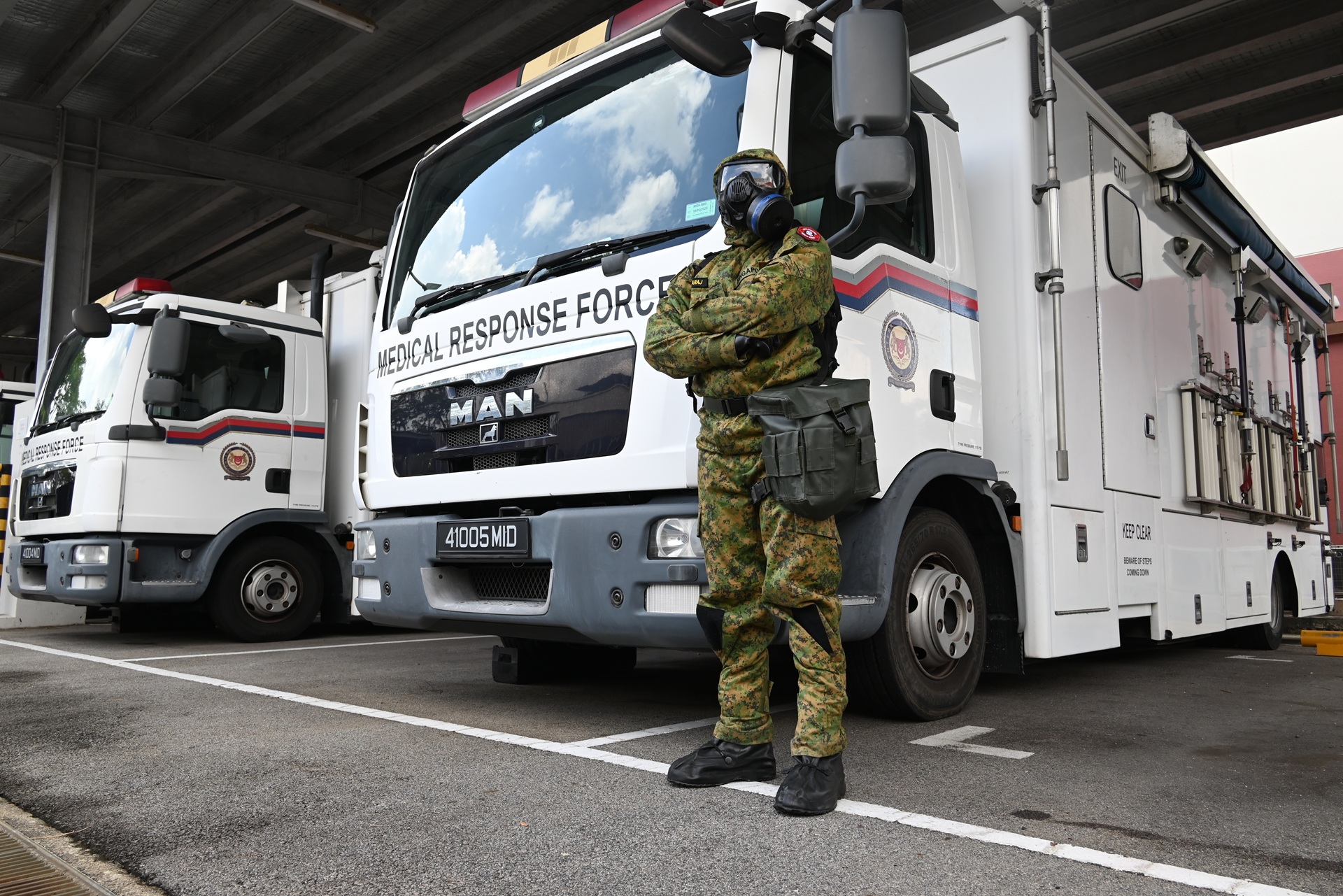FORMER S'PORE PRESIDENT SHARES LESSONS ON LEADERSHIP AT SEMINAR FOR SAF SENIOR COMMANDERS
PHOTO // Simon Koh
A leader managing a crisis has to keep a cool head, ascertain the facts, engage team members to find a solution, be prepared to make difficult decisions, and above all, lead by example.
These were lessons which Mr S R Nathan, former President of Singapore, shared with over 600 Singapore Armed Forces (SAF) senior commanders, and officers attending courses at the Goh Keng Swee Command and Staff College.
These were gleaned from his experience in the labour movement, foreign service, and national security and intelligence. Among the crises he had handled was the Laju incident in 1974, where he volunteered to be held hostage by the terrorists to secure the release of civilian hostages.
"The most important quality is your inner strength, to be able to provide leadership, face crisis, give confidence to your men in what they are doing, and the purpose of what they are doing," said Mr Nathan, who was speaking at the inaugural SAF Leadership Development Seminar as its distinguished guest speaker.
Held at the SAFTI Military Institute on 6 Feb, the seminar was organised by the SAF Centre for Leadership Development (CLD) as a platform for SAF commanders to share and learn the best practices in leadership development.
Also speaking at the seminar was Chief of Defence Force Lieutenant-General (LG) Ng Chee Meng, who delivered a keynote speech on the SAF Leadership Development Master Plan 2020.
Under the framework, the SAF will focus on three key thrusts - leader development, leadership development, and organisational development.
In his speech, LG shared his directions on how the SAF could develop effective leaders, build a cohesive team, and nurture leaders' capability in driving organisational change.
In the case of building a cohesive team, LG Ng emphasised that commanders must demand high standards from their men, and yet, at the same time, show empathy.
"Truly effective leaders must be able to balance these two competing demands to achieve mission success," he said.
Citing football managers like Alex Ferguson and Arsene Wenger as examples of such leaders, LG Ng noted that both were well known for getting the best out of their players, but would not hesitate to remove those who were not team players.
And despite their unflinching quest for excellence, there are players who swear their loyalty to these clubs and managers, said LG Ng.
Four other guest speakers from the SAF shared their insights on topics ranging from how to be an adaptive leader, to building an effective team in operations.
A guest speaker from the United States, Colonel (Retired) Todd James Ebel, Assistant Professor from Command and General Staff College, Fort Leavenworth, shared his experience in building command teams in Iraq.
Participants felt that the seminar was insightful as they got to learn from others' first-hand experiences. For COL Chua Boon Keat, he was impressed with how Mr Nathan had remained calm in a crisis situation.
The Head of National Service Affairs Department said: "I think that's very important for the SAF, because we do not expect to know (in advance) the next crisis that is going to happen; and certainly, we must be able to adapt to any situation and remain calm."
